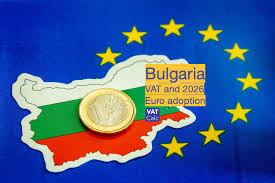Bulgaria adopts Euro currency 2026: authorities to monitor VAT for speculative price hikes

Sofia: On 19 June 2025, Euro zone finance ministers officially recommended that Bulgaria join the euro area on January 1, 2026, making it the 21st member of the euro zone. This recommendation follows earlier favorable assessments of Bulgaria’s readiness by both the European Commission and the European Central Bank. The country has been preparing for this milestone since it joined the European Union in 2007.
As the currency transition approaches, Bulgarian tax authorities are ramping up market oversight to prevent unjustified price increases. The National Revenue Agency (NRA), in coordination with the Consumer Protection Commission and the Commission for Protection of Competition, has launched a joint initiative to safeguard consumers during the changeover. See more in our Bulgarian VAT guide Many of the Lev-denominated VAT thresholds will have to be set in Euro’s, including VAT registration thresholds.
The National Revenue Agency’s use of VAT data analytics will serve as a key tool in detecting and deterring any attempt to profit unfairly from the currency changeover. Measures will include:
NRA has emphasised that any attempt by businesses to raise prices under the guise of the euro transition will be closely scrutinised. Tax officials will cross-check reported price increases with VAT declarations to identify cases of profiteering. If a business reports higher retail prices without a corresponding increase in VAT turnover, it will be flagged for inspection.
In such instances, tax inspectors will require evidence that any price hike is grounded in actual increases in costs. This mechanism aims to ensure that the euro adoption is not exploited as an excuse for inflationary practices.
To date, joint inspection teams have reviewed 150 retail outlets across 30 cities, focusing on 14 essential food categories. The effort is now expanding to include restaurants, fast food vendors, salons, and cafés, where suspicious price changes have already been observed.
Authorities are also addressing issues around misleading dual pricing. Some retailers have displayed euro prices in red font, traditionally used to signal discounts, potentially confusing customers. The Competition Commission announced that such practices must stop. Businesses have been ordered to remove improper signage immediately.
To assist retailers, the Commission has published guidelines and samples of correct dual pricing formats. Starting 8 July 8, all stores will be required by law to show both lev and euro prices with equal font size and colour, ensuring full transparency for consumers.





